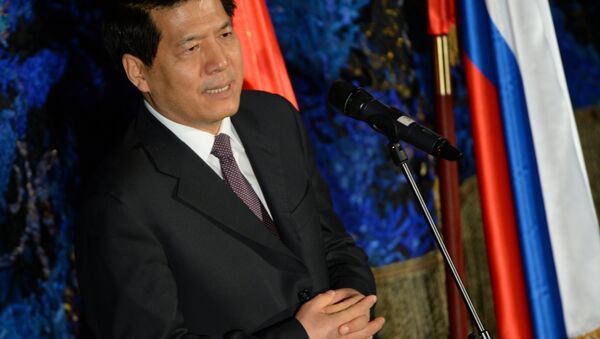"All [Chinese businessmen] agreed in unison that Russia's economic problems are temporary and moreover, the Russian government has developed a detailed anti-crisis plan. Everyone believes in the Russian government, that the situation in the economy is under control and that the Russian government has what it takes "to weather the storm," Li said in an interview with RIA Novosti.
According to Li, regardless of the devaluation of the ruble and falling oil prices, Russia and China are still believe in "growth despite existing trends" amid the global economic slowdown.
"I believe that we can contain and increase the volume of our bilateral trade by using the joint efforts of our government organs and businesses," Li added.
The ruble's exchange rate volatility is not having a significant effect on trade between Moscow and Beijing, Chinese Ambassador to Russia Li Hui said Monday.
The ruble has lost about a half its value against the dollar since mid-2014 due to plummeting oil prices and Western economic sanctions imposed on Russia over the situation in Ukraine.
Russia is Beijing's ninth-largest trading partner. Trade between the two countries increased by almost 7 percent in 2014 year-on-year, reaching $95.3 billion, according to the Chinese customs department.
In late 2014, Moscow and Beijing reached a $2.4-billion currency swap deal in order to strengthen the ruble. Earlier, Russian President Vladimir Putin called for more use of the ruble and yuan in international trade in order to end the "dollar dictatorship."





